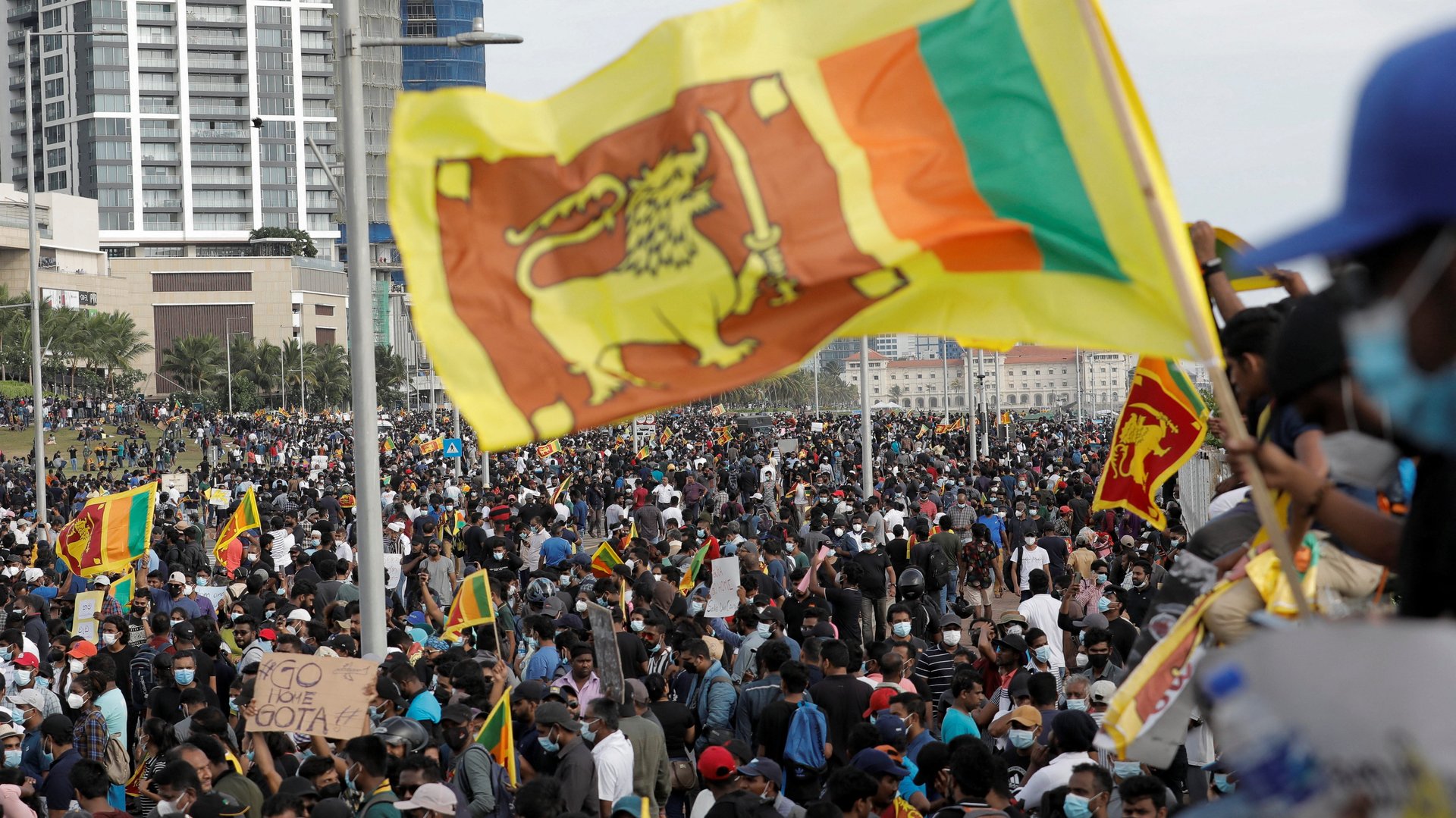Sri Lanka has defaulted on $51 billion in foreign debt
A long-escalating fiscal crisis has forced Sri Lanka to announce a default on all its outstanding foreign debt, running to $51 billion. The move is “a last resort in order to prevent a further deterioration of the Republic’s financial position,” the finance ministry said today (April 12).


A long-escalating fiscal crisis has forced Sri Lanka to announce a default on all its outstanding foreign debt, running to $51 billion. The move is “a last resort in order to prevent a further deterioration of the Republic’s financial position,” the finance ministry said today (April 12).
Under the Rajapaksa family—the president, Gotabaya, and his brother, Mahinda, who’s prime minister—Sri Lanka has plunged into dire times: shortages of food and fuel, power cuts lasting half a day or more, inflation touching 20%. For weeks, protesters have been trying to force them to quit.
Foreign reserves were drained down to $1.9 billion by the end of March—enough to pay for just a month of imports, but far from sufficient to pay the $4 billion in debt repayments that will come due this year. A $1 billion debt payment that needs to be paid in July will alone halve reserves.
Sri Lanka’s debt default will make its political chaos worse
The economic dysfunction is compounded by political disarray. On April 4, all 26 ministers in the cabinet quit. Sri Lanka has a new central bank head as well as a new finance minister, who quit a day after his appointment and then returned when no one else seemed willing to step into the role.
In mid-March, Gotabaya Rajapaksa decided to seek a bailout from the International Monetary Fund (IMF), a reversal of course after his earlier obduracy against asking for help. In scheduled talks with the IMF later this month, Sri Lanka will ask for a bridge loan of $3 billion, its finance minister, Ali Sabry, told Reuters. This money will be used to buy fuel, medicines, and food, Sabry said. The country will also request $500 million in credit from India, as well as further assistance in credit lines, loans, and loan restructuring from China.
But the IMF is likely to impose conditions that, in the short term, will stoke even more anger against the Rajapaksas. In March, after a review of Sri Lanka’s economy, the IMF recommended raising taxes and fuel prices to bolster the government’s fiscal condition. In a country where inflation is so rampant that the Sri Lankan central bank hiked interest rates by an unprecedented 700 basis points on Apr. 8, the prospect of even higher prices will prove painful and unpopular.
How Rajapaksa implements any potential IMF bailout may well be a moot question if he’s forced out of office altogether before the money arrives.